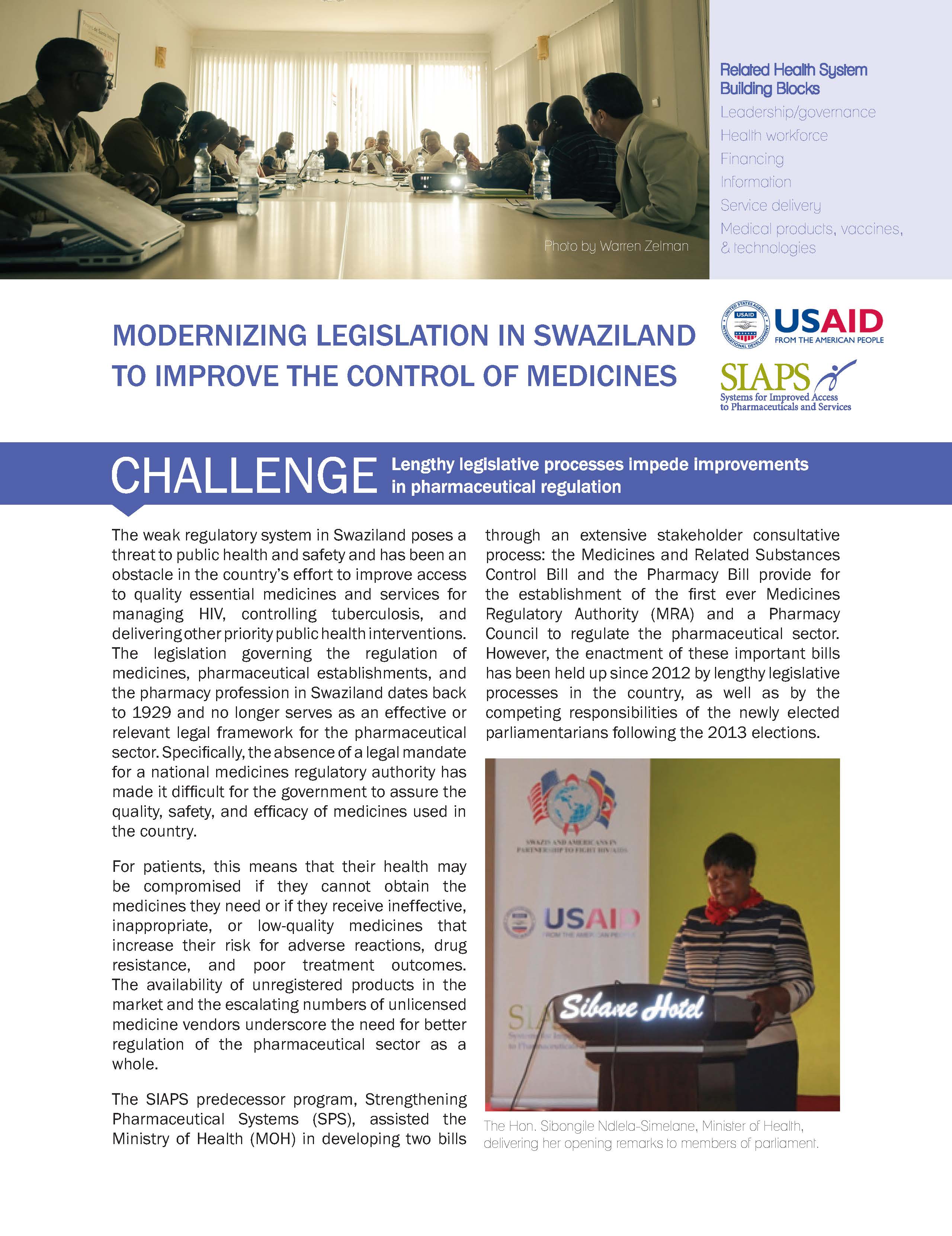
The weak regulatory system in Swaziland poses a threat to public health and safety and has been an obstacle in the country’s effort to improve access to quality essential medicines and services for managing HIV, controlling tuberculosis, and delivering other priority public health interventions. The legislation governing the regulation of medicines, pharmaceutical establishments, and the pharmacy profession in Swaziland dates back to 1929 and no longer serves as an effective or relevant legal framework for the pharmaceutical sector. Specifically, the absence of a legal mandate for a national medicines regulatory authority has made it difficult for the government to assure the quality, safety, and efficacy of medicines used in the country.


